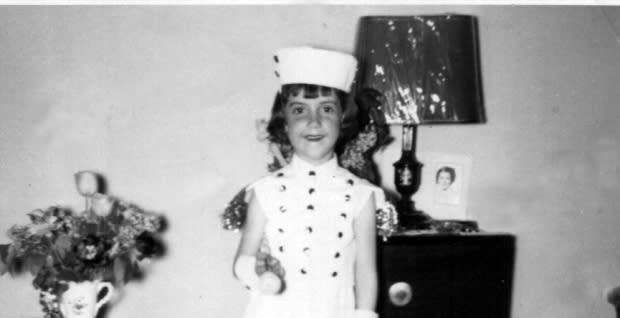'For God's sake, vaccinate your children': Measles survivor still feels the effects after 69 years
Brenda Shaw spent a month in hospital when she contracted measles as a four-year-old in 1950. The infection burst her eardrum, leaving her deaf in her right ear and causing complications that still trouble her today.
Shaw's best friend also got sick during the outbreak that year, and suffered permanent damage to her eyes. Another classmate lost their hearing in both ears.
There was no vaccine for measles at the time.
Shaw, who lives in Oliver, B.C., says this first-hand knowledge of just how serious measles can be has left her feeling exasperated about the news of another outbreak in Vancouver, linked to one family with three unvaccinated children.
"I can't say enough times: For God's sake, vaccinate your children. It does not cause autism," Shaw told CBC News on Monday.
Much of the hysteria around a possible link between vaccines and autism stems from a discredited 1998 study written by Dr. Andrew Wakefield. The study was retracted by the medical journal The Lancet in 2010 and described as an "elaborate fraud" by other researchers.
'I was in extreme pain'
Today, despite two eardrum transplants over the years, Shaw is still deaf in her right ear and often suffers from vertigo and nausea.
She still has vivid memories of the illness that would shape her childhood, especially the pain of her burst eardrum.
"I remember waking up that morning and my pillow case was covered in pus and blood. I was in extreme pain and screaming for Mom," said Shaw, now in her 70s.
"Dad just picked me up in his arms and drove to the hospital and that's where I stayed."
Shaw remembers spending two weeks lying on her right side while the infection drained. After she was finally released from hospital, she had to make yearly visits to B.C. Children's Hospital in Vancouver for tests.

From then on, Shaw had to avoid getting water in her right ear. Washing her hair became a difficult chore and she wasn't allowed to go swimming.
"I'd never learn to swim properly because I couldn't put my head underwater," she said.
In the meantime, her mother contracted rubella, then known as German measles — another disease now preventable through vaccination. Lena Shaw was pregnant at the time and complications from the disease turned out to be fatal for her baby girl, who died 13 days after she was born on Aug. 16, 1952.
'They can kill'
Shaw said she can't understand why anyone would choose not to vaccinate their children against the serious and potentially deadly diseases.
"They can kill. You need to do some research yourself. You have to see the ramifications, because it's very serious," Shaw said.

Measles is one of the most contagious diseases in the world and can survive for hours in the air or on surfaces. It's possible for an infected person to spread the virus through a cough or a sneeze as many as four days before the telltale rash appears.
Some of the most serious complications of a measles infection include blindness, encephalitis and severe diarrhea. One in 10 people with the disease will contract ear infections or pneumonia, according to the B.C. Centre for Disease Control.
About one in every 3,000 measles patients will die from respiratory or neurological complications.
The World Health Organization said 110,000 people died of measles globally in 2017. Most were children under the age of five.


